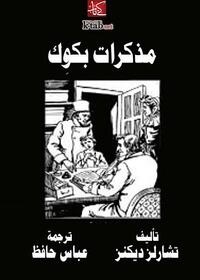Take a photo of a barcode or cover
This was Dickens' first novel, and it follows the escapades of Mr. Pickwick and his friends as they travel about meeting and interacting with various English characters. The social ineptitude of Mr. Pickwick's entourage was quite amusing at times, and they sure did manage to get themselves into (and out of) a number of ticklish situations. The end of the novel seemed to become a clarion call to recognize the immorality of the legal profession in general and the idea of the debtor's prison (pertinent at that time in London society), in specific. As a fan of Dickens, I enjoyed reading this work which I had not read before, and I would recommend it to anyone who is partial to Mr. Dickens' literary oeuvre.
Not my favorite Dickens. It felt like he didn't know what he wanted to do with it for awhile -- the first parts were episodic, but the later parts had a bigger story arc. Still, we're treated to those wonderful Dickens characters. I read most of it, then finished by listening to the audio by Simon Prebble, which was great.
medium-paced
The Pickwick Papers is a comic novel. This long Dickens work covers about two years in the life of Samuel Pickwick, English gentleman of independent means. Mr Pickwick is a caricature of a nineteenth century gentleman: pompous and clueless; but also obstinately principled. Many plot elements deal with lawyers and the British legal system, which I found particularly funny. Highly recommended.
For years, I’ve been reading a Dickens novel more or less annually, usually in the winter months. I’ve worked through all of his novels this way; The Pickwick Papers was my last one. I put it off for two years (see “more or less annually”, above), partly because it’s very long even for Dickens and partly because I was under the impression it would be vignettes instead of a fully plotted novel, and silly to boot. How wrong I was! It starts out vignette-ish, to be sure, but a plot kicks in after too long; you can actually see it begin to happen around chapter four, which is rather exciting, as young Dickens (twenty-four when he wrote this) starts to rev his engine and commit to his characters. It’s very funny, and in some places farcical or satirical, but it isn’t silly. It’s about goodness, and how the fundamental dignity of goodness is unassailable by the minor common indignities of being alive. Pickwick is a wonderful character, but Sam Weller—his omni-capable cockney valet—is better still. (Wodehouse’s Jeeves, although his accent is more couth, and he would shudder at the comparison, surely derives a strand or two of DNA from Weller.) Dialogue and exposition are clear and uncluttered; Dickens hasn’t yet worked himself up into a clotted descriptive style, so all the actual writing is fresh. And the interpolated stories are just brilliant, moving and surprising and atmospheric, themselves Dickens plots in miniature: the Tale of the Queer Client, for instance, who pursues vengeance on his cruel father-in-law through the courts unto the old man’s death, or the proto-Christmas Carol tale of the goblins who steal a curmudgeonly sexton on Christmas Eve and return him to Earth a better man. I was so pleasantly surprised by all of it; it was an absolute joy to read. Now I have to decide what to do next: the nonfiction and journalism, starting with Sketches By Boz, or begin a reread of the novels? Source: Bromley libraries
This audiobook version of the Pickwick Papers was narrated by Anton Lesser, who was excellent. His narration absolutely brought the book to life, especially the humorous aspects. I accidentally listened to the abridged version, which was only a few hours long (instead of the 30+ hours of the unabridged version). It was enough to get a good flavour of the story without getting too boring.
emotional
funny
hopeful
medium-paced
Plot or Character Driven:
A mix
Strong character development:
No
Loveable characters:
Yes
Diverse cast of characters:
Complicated
Flaws of characters a main focus:
No
Deservedly a comic classic and a fascinating insight into the development of Dickens; you can see his grasp of the form expanding practically page by page. This is easily my 5th or 6th reread and it won’t be the last
The Pickwick Papers promised heft. Weighing in at 900 pages and larded with indices and erudite observations, the project promised muscle training, if nothing else. The serial natural of the narrative and general zany approach was also apprehended. I simply wasn't prepared, however, for Sam Weller. Oh lord, he may be my favorite character in recent memory. I wasn't prepared for such. I was expecting tales of the idle and curious confronting rural and proletarian situations, if only for hilarity and general misunderstanding to ensue. I didn't expect the wit and loyalty of young Weller, especially as the novel takes a rather dark turn and visits the black humors of Dickens' past. Along the journey, politicans, journalists, bankers and lawyers submit to tar-and-feathering: we are all the better for such. There's a surfeit of humiliation, but few are actually mean, as such.
Yes, the final fifth met the approval standards of its period. There are a slew of marriage plots to be resolved. Somehow that struck me as an addendum for decorum's sake. The novel becomes a meditation on friendship; between Pickwick and Weller, Sam and his father, the reader and Dickens.
I'm looking forward to reading all of Dickens this year; The Pickwick Papers was a marvelous inaugeration.
Yes, the final fifth met the approval standards of its period. There are a slew of marriage plots to be resolved. Somehow that struck me as an addendum for decorum's sake. The novel becomes a meditation on friendship; between Pickwick and Weller, Sam and his father, the reader and Dickens.
I'm looking forward to reading all of Dickens this year; The Pickwick Papers was a marvelous inaugeration.
"The Pickwick Papers" was Charles Dickens' first novel, and the tenth of his that I read. My expectations were low - I have very dark memories of trying to read it twenty years ago, and never getting past the first couple of pages, and a co-worker confirmed that impression. However, ten months and books in, I didn't let myself get deterred and really, "The Pickwick Papers"? Is a fun book.
If there is anything I've learned while reading Dickens it's that the best way to approach his books is in the way they were published. I read it in the parts it appeared in magazine form, and if you have the time, that is always the way I would do it. There are less chances of getting overwhelmed, and you can appreciate the way he uses the space and cliffhangers (those more in later books, though).
"The Pickwick Papers" doesn't have one big plot as such, and if you expect a "proper novel" you're going to be disappointed - it's more stories linked by a loose overall "arch" (or, if you will, "excuse"). It has a feel of "making it up as he went along" to it, but not in a bad way. It's funny, and fun to read, and also very English. It's not, perhaps, the book I would suggest if you only want to read one book by Dickens, but in my personal ranking it's right up there with "Nicholas Nickleby".
(At this moment, "Bleak House" and "Great Expectations" are at the top, followed closely by "David Copperfield", then "Nicholas Nickleby" and "The Pickwick Papers". After that, it's a bit of a muddle, but "Oliver Twist" is the one I enjoyed least so far.)
If there is anything I've learned while reading Dickens it's that the best way to approach his books is in the way they were published. I read it in the parts it appeared in magazine form, and if you have the time, that is always the way I would do it. There are less chances of getting overwhelmed, and you can appreciate the way he uses the space and cliffhangers (those more in later books, though).
"The Pickwick Papers" doesn't have one big plot as such, and if you expect a "proper novel" you're going to be disappointed - it's more stories linked by a loose overall "arch" (or, if you will, "excuse"). It has a feel of "making it up as he went along" to it, but not in a bad way. It's funny, and fun to read, and also very English. It's not, perhaps, the book I would suggest if you only want to read one book by Dickens, but in my personal ranking it's right up there with "Nicholas Nickleby".
(At this moment, "Bleak House" and "Great Expectations" are at the top, followed closely by "David Copperfield", then "Nicholas Nickleby" and "The Pickwick Papers". After that, it's a bit of a muddle, but "Oliver Twist" is the one I enjoyed least so far.)




